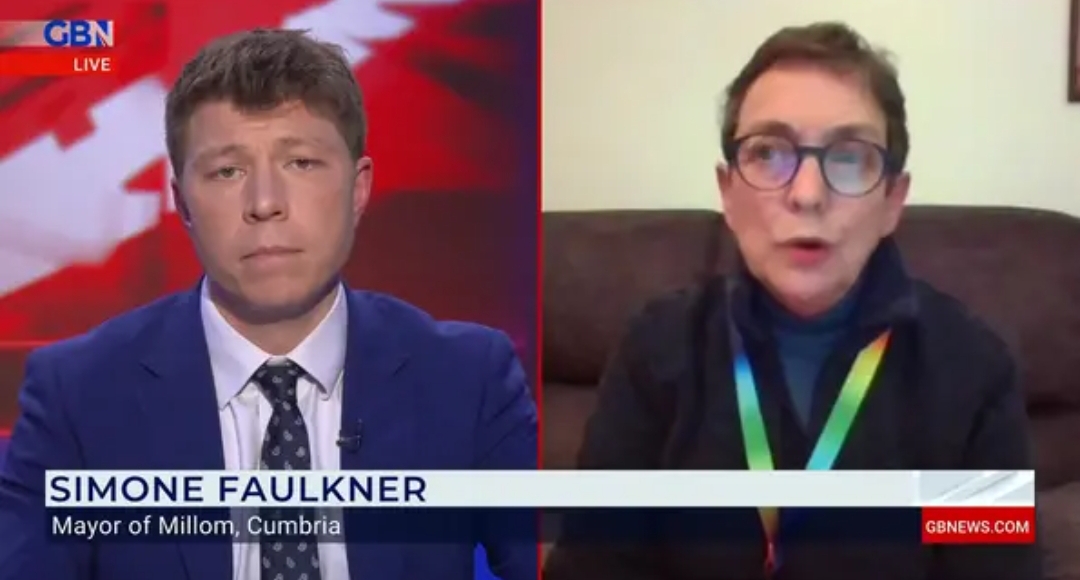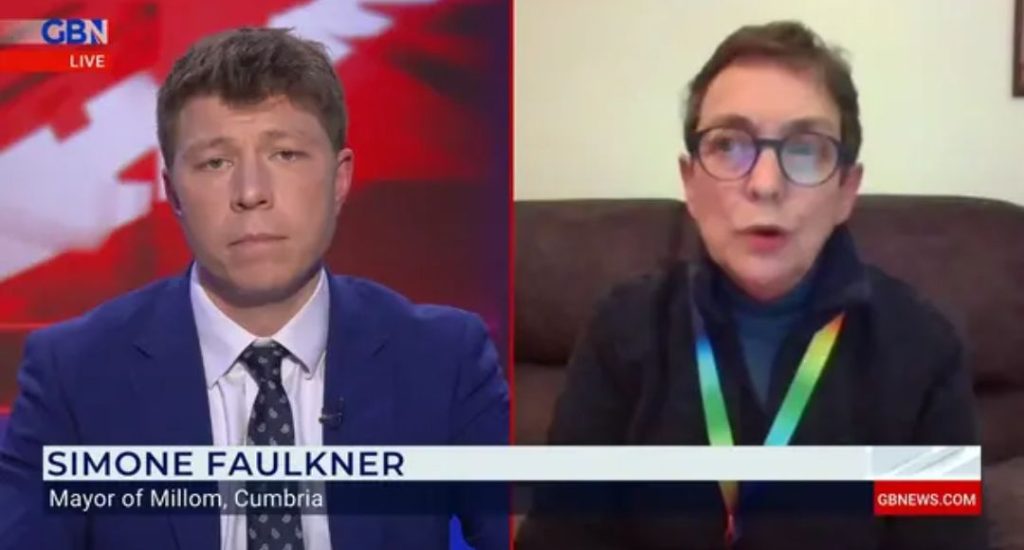
In the picturesque town of Millom in Cumbria, a storm of controversy has erupted as plans to convert eight homes into Houses of Multiple Occupancy (HMOs) for asylum seekers were revealed. The move has sparked fury among locals, leading to protests and even acts of vandalism, bringing to light broader concerns about consultation, infrastructure, and the handling of the migrant crisis.

The town’s mayor, Simone Faulkner, expressed her frustration during an interview on GB News, highlighting the lack of consultation with the community. Faulkner emphasized the town’s poor infrastructure and transportation system, arguing that such plans should have been communicated to the residents beforehand. The revelation came as a surprise to many, with the town council only learning about the initiative when it surfaced on social media
According to GB News, Local opposition has manifested through graffiti on one of the properties, bearing the message ‘not welcome scum’ in large black letters. The resentment is not merely about the arrival of asylum seekers but is deeply rooted in the perceived disregard for the opinions and concerns of the local community. The housing shortage in Millom adds another layer of complexity to the situation. With the town already facing a scarcity of available homes, the decision to allocate properties for asylum seekers has intensified the backlash. Critics argue that public services are already stretched, and adding a significant number of newcomers could strain the existing infrastructure further.
Faulkner’s frustrations extend beyond the lack of consultation; she also criticizes the absence of a clear strategy from the government. While expressing Millom’s compassionate history in housing Ukrainian refugees, Faulkner stressed the need for information and support. The absence of a detailed plan has left the community uncertain about the impact of the decision on their town and its residents. The Home Office responded to the controversy, condemning acts of vandalism while reaffirming its commitment to providing safe and secure housing for asylum seekers. The spokesperson acknowledged the unprecedented pressure on the asylum system due to increased illegal journeys into the country. However, the government’s statement did little to assuage Faulkner’s concerns about the lack of information and strategy.
As the situation unfolds, the clash between the Home Office’s obligations and the local community’s demands underscores the challenges in managing the impact of the migrant crisis at the grassroots level. Striking a balance between fulfilling humanitarian duties and addressing the legitimate concerns of communities like Millom remains a complex task. The controversy sheds light on the need for transparent communication, comprehensive planning, and community engagement to navigate such sensitive issues in a manner that respects both humanitarian values and local sentiments.




